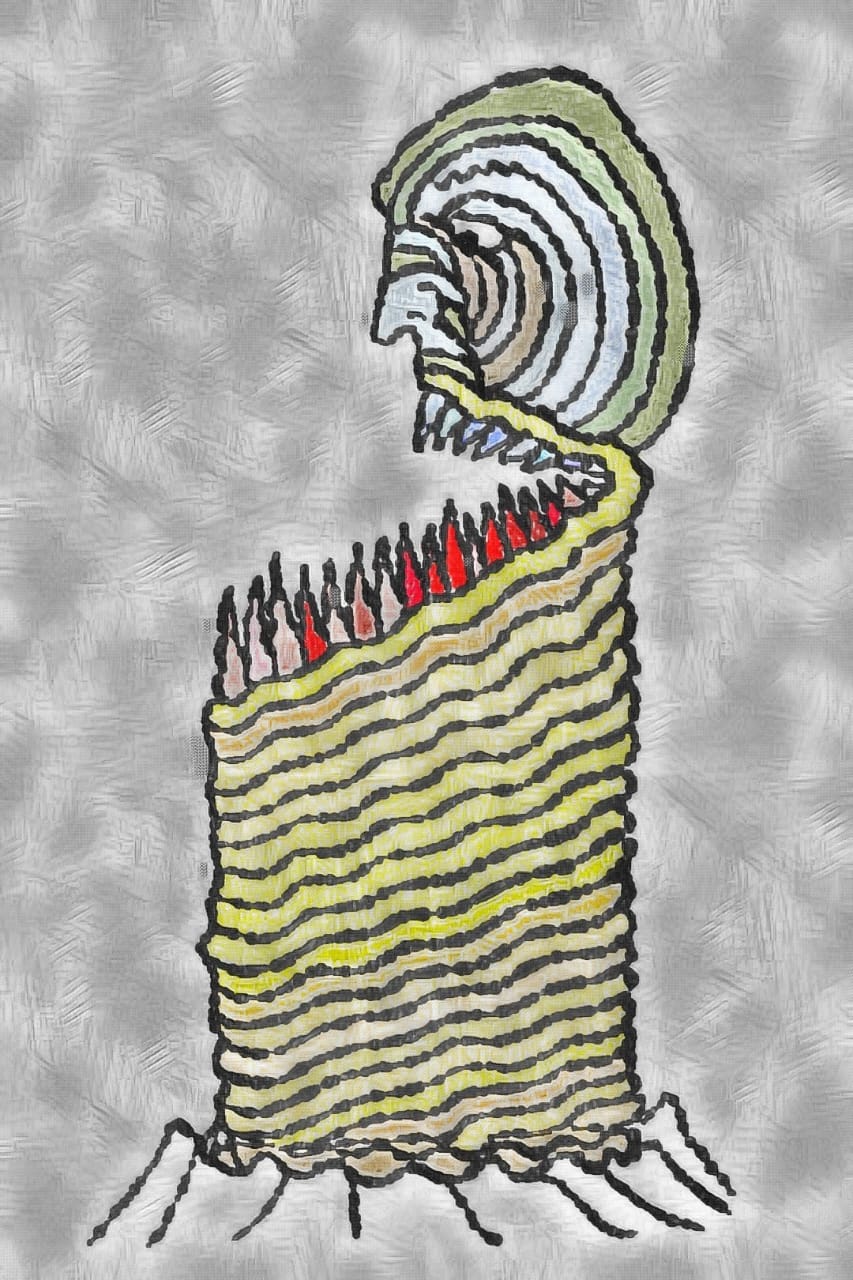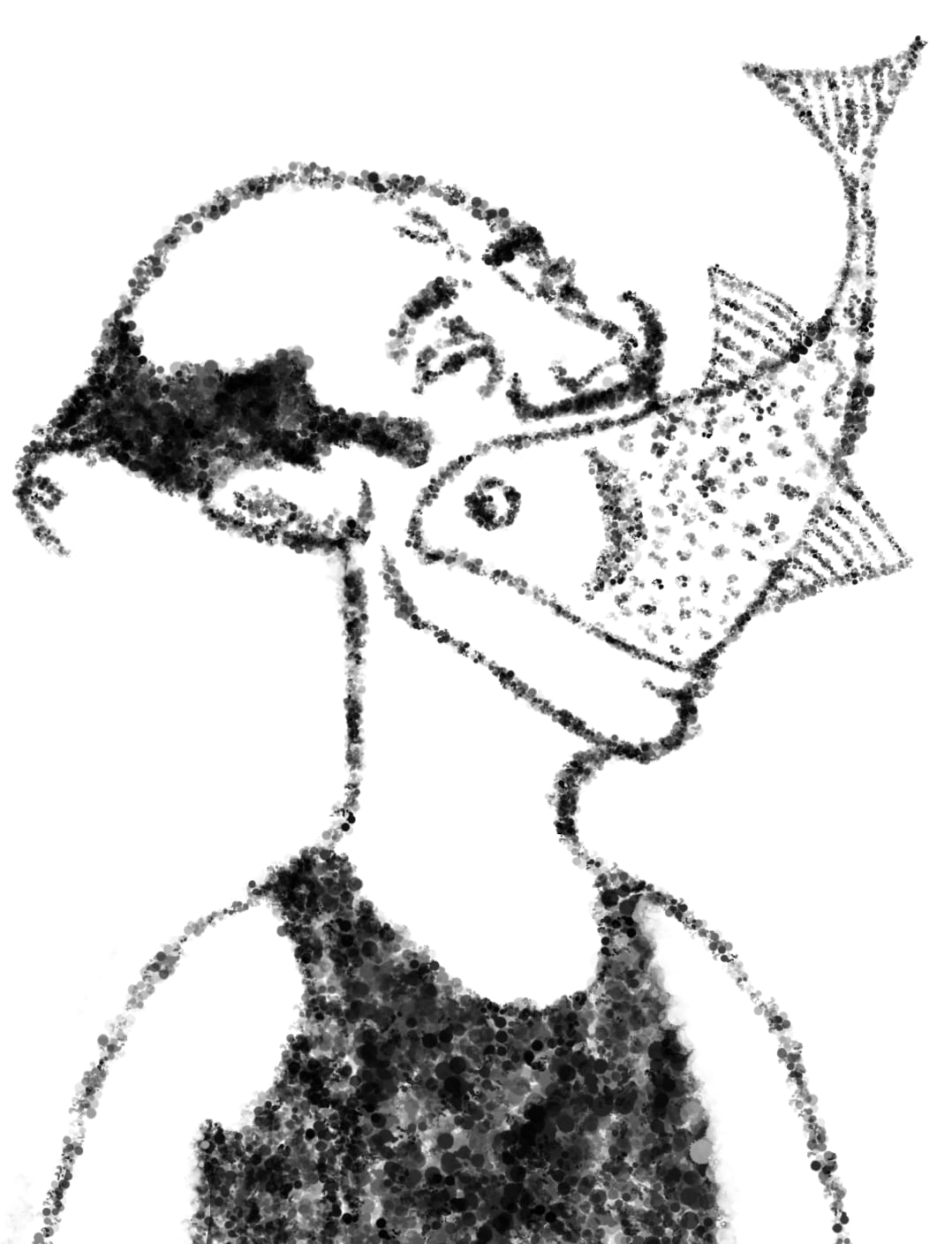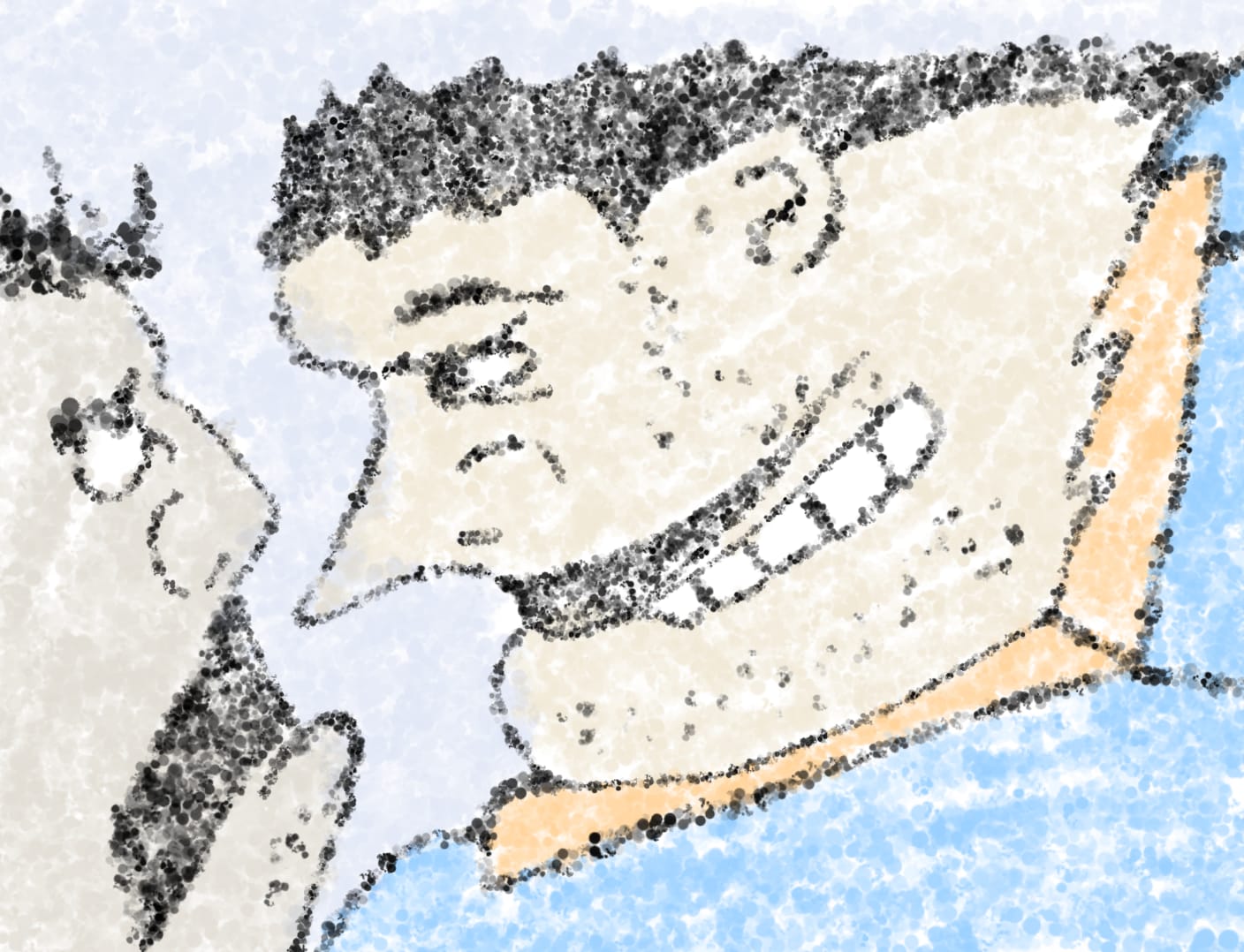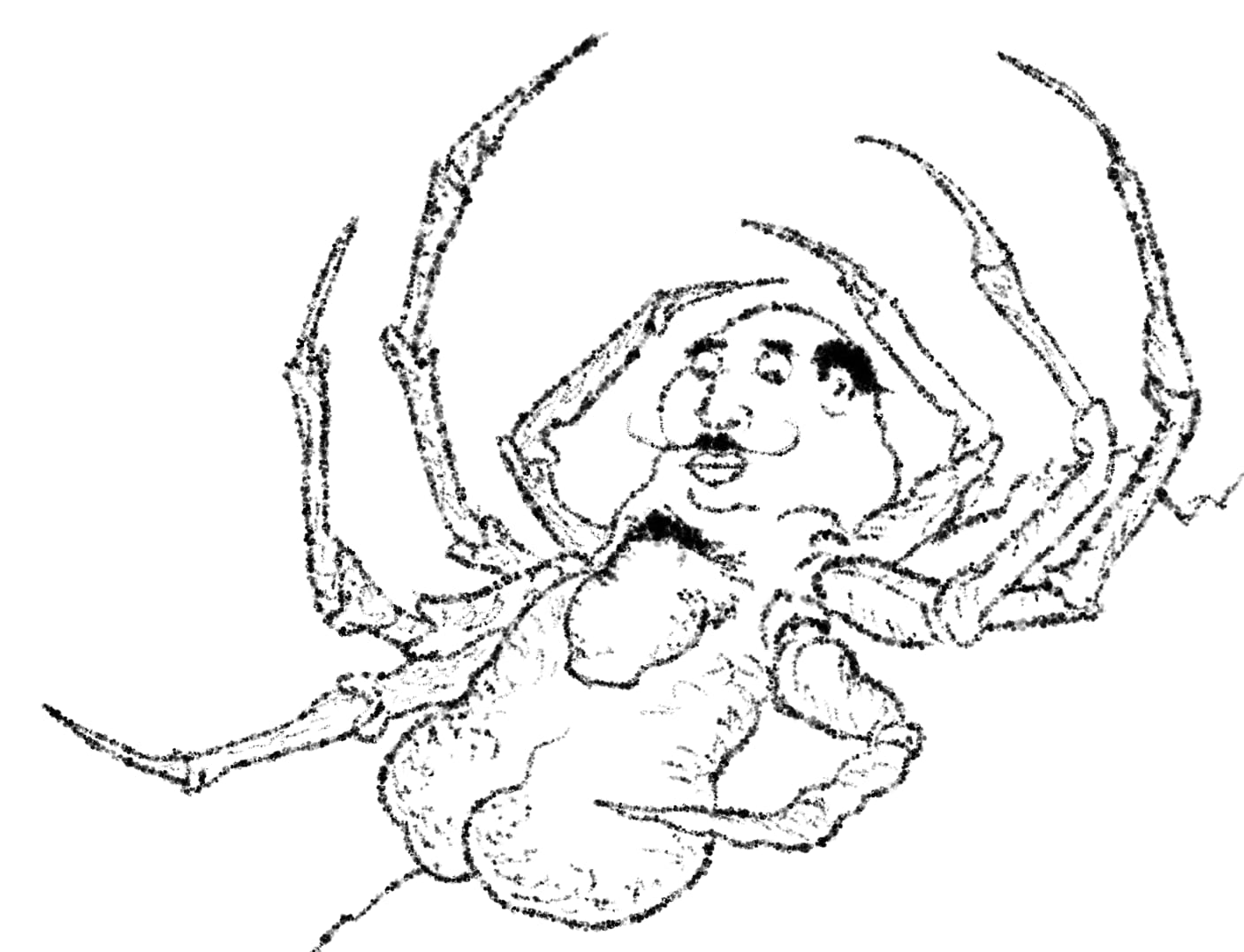Birthday Boy

I had intended—no, I had resolved—to put an end to this blog. Not from pride, which has long since dissolved like sugar in stagnant tea, but from a sheer awareness of redundancy. What does one record when one’s life has become a broken metronome? I am a loser now, undeniably and without charm. Scrambling through the loose gravel of India’s subcontinental crust, watching hope flake off my skin like sunburn, I have become unreadable—even to myself. And who shall read this but me? A ghost of me in a time yet to come, flicking through his own elegies like a fly over bruised fruit. April 16, 2025 was when I turned fifty. The day is a recurring deep self-inflicted wound—a reminder I am still around, primarily a nuisance to everybody, and a cause of consternation and self-disgust. I should attempt swallowing a giant fish until I choke. I’d rather like that death scene with some monstrosity protruding out with salivary porridge dribbling down, maybe it’ll haunt a child, I’ll be a hated memory for a day. Remembered in the ignominy of an obscure, and painful, almost cartoonish death.

It is not without some hesitation that I allow myself to pronounce the age of fifty, for time—true time, not the sort marked by calendars or watches but the viscous, atmospheric time in which our identities ferment and decay—does not move with the regularity we pretend it does. You become fifty not on a particular day, not even within a season, but as you become aware of the wear in your gait, the tonality of your sighs, the changing relationships with divorcing or distancing kith, dying kin or missing teeth, the sad cadence of recurring memories and the bitter dulling of those that once had the grace to surprise us.
There is, one must admit, something obstinately hypnotic about repetitions, about the way certain days present themselves not as the same, but as warped echoes of what once was. Particularly a birthday—particularly the fiftieth does, celebrating alone with the forlorn shadow of an unwanted past. And when it shrieks like an alarm clock panic, it’s too near to be ignored and the memories come flooding back. Especially here, where I breathe and rot—a bankrupt Bengali in a country that speaks in exclamation marks while living a footnote. And yet, the day insists. It makes its little alarm-clock noise. Not with ceremony, but with that quiet bodily uneasiness by which a man realizes—too suddenly, too late—that he has crossed not a threshold but a thick, invisible membrane. A soft rupture has occurred, and all that remains is the wet slap of one’s existence being reassembled in ejaculatory dollops after the fact. Not the clean precision of recollection, but the viscous accumulation of experience, awkward and uninvited, like the return of an old lover one now recognizes only through discomfort.
There was a time—was there not always such a time?—when I assigned to the 16th of April a talismanic significance, not through any metaphysical inquiry but through the idle superstition that springs from the need to confer meaning upon dates, those numeric symbols that otherwise march on with a pitiless banality, as a child perhaps, even as a youth with hopes. But now I understand—no, I feel—that it was not the day that mattered, but the me who once believed it did. I am now no more than a filiform thing, a worm among the countless vermicular creatures clinging to the damp underside of a spinning stone, orbiting a sun so indifferent it could not even be said to shine for us. We name it “our star,” as a child names a stray dog, not because it belongs to us but because we are lonely.
Homo sapiens, so fond of their own noise, have always lent reverence to anniversaries of birth, as if the recurring sun were somehow aware of the time since we tore through the umbilical boundary between blood and air. But what is a birthday but a breathless moment in the continuum, marked by celebratory lies, perfumed exhalations of love and hope, that inevitably sour into the digestive anxieties of expectation unmet—bad dreams if we’re lucky, intestinal anguish if we are not. I have tried to fend off both with pharmaceuticals and an air-conditioning unit that performs the modern miracle of giving night a neutral texture.
Around me, the world murmurs its tedium—history with its cast reshuffled, tyrants reciting lines from old scripts, democracy putting on its sickly powder for a wan performance, and corruption once again playing the eternally nominated lead. I am fifty, that mythical precipice from which youth’s delusions are supposed to fall away like molted feathers, and yet I remain tangled in their aftertaste, weary but not yet wise. The madness of aspiration, that cruel prank, has mostly left me, not through discipline but through erosion.
Living in India—this grand theatre of absurdities, this laboratory of contradictions—I find that decency is less a virtue than a liability, and the absence of the knack for criminality makes me practically illegible to this society. To be uninterested in grift is to be irrelevant. Those who once knew me, those acquaintances of my past with their permanent frowns and damp enthusiasms, would surely tremble with petty ecstasy at my failure, so deeply ingrained is the schadenfreude instinct to claw the one who tries to climb. There is something infinitely melancholic about a civilization that weaponizes memory and fond sentiment as tools of self-sabotage. But India and Indians can and have to do better—one day, may be the descendant androids will be morally and ethically at a better hyperplane, at least they’ll know the vector coordinates of it.

The path here has been long and largely composed of noise without signal. My name, my image in the mirror, the sequence of days—none of it coheres into something I would call a life, unless by life one means simply the uninterrupted consciousness of futility. And yet I am glad to have examined it. In this dissection, perhaps, there is dignity, even if it resembles more a frog on a cheap dissection pin than a philosopher at peace.
Religion, fiction, and their hybrid offspring—those pastel hallucinations offered to the weary—are easier to hold than the infinitudes. And I, like Cantor or Boltzmann, peer sometimes over the edge of that infinitude and see in its trembling depths not revelation but a bitter self-portrait. Infinity, to me, is no longer a mathematical curiosity or theological space; it is the shape of the void my ambition has carved into me, a contour traced by absences of my former wants.
I’ve stopped expecting things. This, finally, is a mercy. Expectation is the cruelest accomplice of love and longing, of wants and needs. It is not people who fail us, but the projections we have dared to cast upon their fragile flesh. I do not wish to cast shadows anymore or aspersions. Let them walk past me, unshaped and undisturbed, I have no need for the husks around me anymore. To work for money in the manner prescribed by contemporary society is to walk with one’s throat exposed through a garden of invisible blades. Salaried suffering. Entrepreneurial delusion. Management by mediocrity. I have no taste for that meal anymore. I prefer hunger.
And so I sit, in the corner—no, the idea of the corner expands, folds into itself like some bipolar escherian-infinite fantasy—until I find myself nested within a chain of concentric corners, each a shell inside a greater one. The corner of my thought, nested in the corner of my psyche, which is lodged in the worn upholstery of a bargain foam-sofa, itself stashed in the only room I inhabit in a hardscrabble cheap Calcutta flat, in the city’s boondocks that has forgotten its own name, in a country blistered with gods and faeces, on a planet rehearsing its extinction, circling a star it did not choose, in a galaxy that appears to be going nowhere in particular, in a universe that could be only one among infinite others, in a dimension whose rules we mistake for truths, where my 50th revolution is marked by nothing more significant than a smudge on a digital screen. But it’s a corner. I’m cornered. The roads I’ve walked upon has led me to this one inescapable corner, and at fifty, it’s too late for me to be someone else or be somewhere else. I’ve given up, and gone home, this corner is that home. I’m done—you see.
What is a birthday in the context of cosmic microwave background radiation? What is selfhood when confronted with dark energy and the second law of thermodynamics? The biblical fictions, the vedic hallucinations, the theological calligraphy of every creed—all of them blush and wilt in the face of the 13.8-billion-year-old silence that envelops us like a shawl knit from the ashes of dying stars.
I do not expect to matter. I may well be only the audible flicker of an idea dying inside a solitary primate’s skull. But I remain—this whisper, this me. And in that stubborn residue, that last clinging film of sentience, I persist. I persist. And I write. Not to entertain. Not even to inform. But because the pressure within, if unvented, seeks more treacherous paths. The loneliness, that unplaceable itch inside the skull, demands a valve. Writing is the mercy I grant myself—the small room I build inside a larger collapsing structure. If this, my own crumbling voice, can bottle whatever once animated me, then let it be bottled—even if what leaks through now is nothing more than the slow drip of bruised testicles and a sphincter slackened by years of unmet urgency.
There is something almost noble in the preservation of the ordinary. In this age of hallucinated brilliance, where every voice strains toward the shriek of exceptionalism, the voice of the average is rendered inaudible. I, born of the glinting American machine and yet rooted in a darker, slower India, feel the pinch of this asymmetry daily. The world makes room only for its fictions, and the fiction it prefers most is the heroic self. The quiet self, the undistinguished self, must carve out its diary in darkness.
What passes now for intelligence—this twitchy performance enacted by machines and the men who fear them—is a parody of thought. A worm in a jar adapts too; it learns the rhythms of starvation and quake, but this is not wisdom, merely compliance. I, too, was a worm once—American-trained, calibrated to flourish in the clean light of meritocracy. But when I returned, I was returned to a petri dish of different microbes and forgotten rules. The behaviors I had acquired were no longer adaptive—they were, in fact, liabilities. This—this mismatch—is a fractal, I suspect. A deep pattern repeating itself at all scales. The mind must learn, relearn, unlearn, as a child does, slapped to startle its first breath. What else is reinforcement but the long echo of that slap? The machine learns as we do—but stripped of our damp preconditions. The “zero” in AlphaZero is the most human part of it: the tabula rasa, the shame of knowing nothing, the determination to play until something resembling knowledge arises.
And what of Artificial General Intelligence? I am not afraid. Its generality is a ruse. It is not designed for the slow brutality of April heat, for the armpit of a Calcutta bus, or for ferrying biryani to the indolent. These remain human tasks, not because they are noble, but because they are beneath calculation. Machines will not do them because machines cannot be made to hate themselves cheaply enough. This “general” is not ours. It is the child of circuits and seminars, of first-world funding and privileged abstractions. The real Calcutta is not in its dataset. The real India cannot be rendered into logic gates. Let them keep their rockets and robots. In the meantime, we—the retrograde class—will be retained for all the pooting, pissing, and shitting tasks that form the true baseline of civilization.
Eventually, the system will sort itself: intelligence to silicon, servitude to carbon. The commas we place—our sole contribution—will be the ligatures of a post-human grammar. The bots will compose sonnets, solve physics, and simulate orgasms, while we warm their servers with our collective waste. And in some distant simulation, they will recreate us—not for nostalgia, but for maintenance. Our anuses will be digital ports. Our functions shall be symbolic. And I, who have reached fifty, and who shall die not in mystery but in India, will have lived at the exact hinge in time where meaning gave way to its caricature, where gods were traded for algorithms, and where the human condition finally submitted to its terminal condition akin to an insect alive and well but on its back which will eventually die of exhaustion.

And yet I write, because I am sorry—I still exist. Because even a losing hand has a texture. Because even waste has a scent. Because even now, in this unbearable, ejaculatory moment, I still remember the slap that made me breathe.